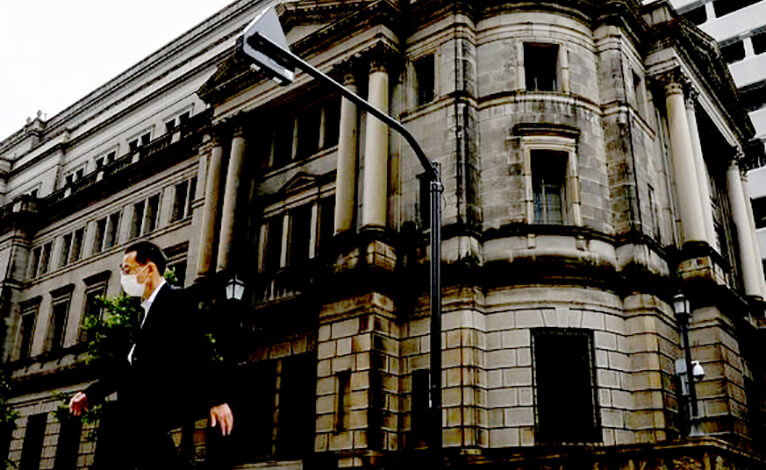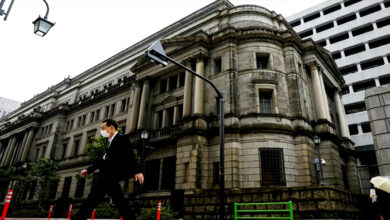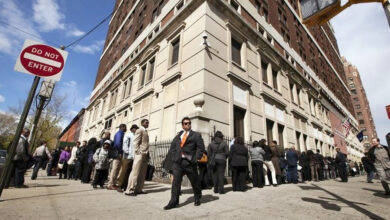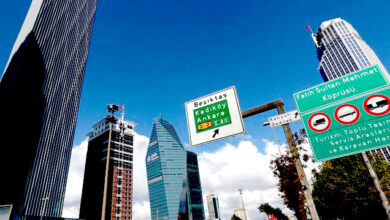Analysis: The public is angry about the BOJ’s dovish isolation before a change in leadership.

TOKYO (Reuters) – The rapid drop in the value of the yen and the market distortions caused by the current monetary settings have put the Bank of Japan under more political pressure as it becomes more and more isolated in a world where most central banks have hawkish policies.
The BOJ is getting a lot of heat from opposition lawmakers for letting the currency weaken and living costs go up. This puts Prime Minister Fumio Kishida in a tough spot before an upper house election in July.
Kishida has defended the BOJ’s policy by saying that it is necessary to support an economy that is still weak. However, the new scrutiny of the bank could change the way the government decides who will replace the bank’s dovish governor, Haruhiko Kuroda.
As the weak yen and global shift toward tighter monetary policy start to change Japan’s policy debate, the next leader of the central bank may be chosen based on how possible it is to keep interest rates very low.
“Since 1990, the BOJ has kept rates at 0%. On top of this, the cost of raw materials has been going up. It’s time for the BOJ to change its policy on the weak yen, “Akio Fukuda, a lawmaker from the opposition, told deputy governor Masayoshi Amamiya in parliament on Tuesday. Amamiya is seen as a strong candidate to take over for Kuroda.
Usually, the choice of governor is closely watched. However, because of the current economic problems and the increased attention on the BOJ’s unusual monetary policy, there is now more even attention than usual.
Former BOJ deputy governor Hiroshi Nakaso, who is also seen as a front-runner to become the next governor, weighed in by saying that the “Abenomics” policies of former prime minister Shinzo Abe relied too much on radical monetary stimulus.
Even though there won’t be a rate hike anytime soon, the change in public opinion puts pressure on the BOJ to have a plan ready in case it needs to change the yield cap.
“If the yen keeps falling, people will be even more upset about rising prices. There are also questions about whether the BOJ can buy too many bonds “Nobuyasu Atago, who used to work for the BOJ and is now the chief economist at Ichiyoshi Securities, said this.
“If the yen falls too much, the BOJ might change the way it controls the yield curve later this year.”
COMMUNICATION CHALLENGES
The yen has dropped to levels not seen in 20 years because of the possibility of aggressive rate hikes in the U.S. This is in contrast to the BOJ’s policy of keeping short-term rates at -0.1% and the 10-year yield around 0%.
Kuroda has explained why he wants to keep rates low by pointing out that Japan’s inflation, which is expected to reach his target of 2% this year, is still much lower than that of Western countries.
But it might be harder to argue for low rates if the European Central Bank, which has been a fellow “dove” among central banks around the world for a long time, ends negative rates this year.
People are feeling the effects. A BOJ survey from last month showed that the number of people who think prices will go up in a year is at its highest level in 14 years, and more of them feel worse off than they did three months ago.
A Reuters poll found that more than 60% of Japanese companies want the BOJ to end its ultra-easy policy this fiscal year. This is because the weak yen is hurting them.
Investors don’t like how the BOJ is working harder to protect its 10-year rate cap because it messes up the yield curve and undoes years of work to get the market moving again after its huge presence put it to sleep.
Some analysts say that the difference between the public’s worries about the weak yen and the BOJ’s desire to keep its ultra-easy policy could hurt the bank’s credibility and make it harder for it to explain its policy goals.
Naomi Muguruma, a senior market economist at Mitsubishi UFJ (NYSE:MUFG) Morgan Stanley (NYSE:MS) Securities, said that more and more people think the BOJ is to blame for the weak yen and rising costs for households.
“Monetary policy won’t work well if markets and the public don’t understand what the BOJ says.”





